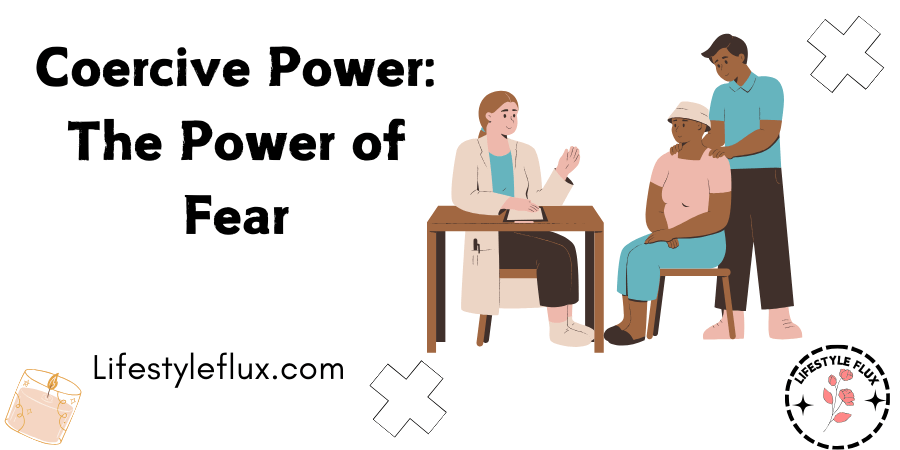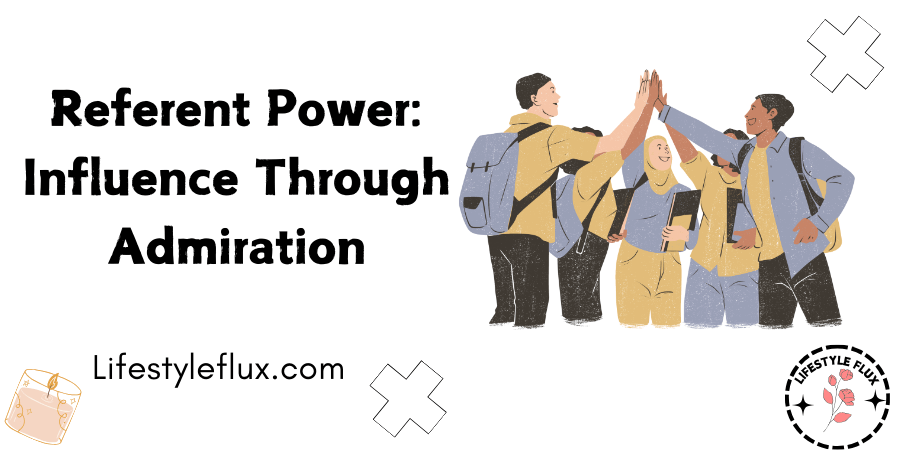What gives you power over someone else? Why can one person make a demand and many other people will listen without question? What divides the powerful from the powerless, and where does their power come from? Power governs how you think, act, and make decisions in almost any social setting.
No matter where you go, you’re constantly searching for ways to relate yourself to the people in your environment. Now, imagine yourself at the grocery store. Most people wouldn’t think of this as a very power-heavy place. However, as a customer, you weigh your power against that of a cashier or a manager.
That comparison tells you what you can and can’t do. You can, for example, ask for service or request something from an employee, and you do have enough power to expect that they’ll help you.
On the other hand, you don’t have the power to decide if an item is on sale or restock an empty shelf. In this way, every environment creates a unique hierarchy of power.
Of course, that doesn’t mean every instance of power is inherently different. In the late 1950s, leading social psychologists John French and Bertram Raven published a transformative study on psychological power.
They discovered that there are essentially five bases of power. Every power dynamic, whether you’re in class, at work, or just at the grocery store, stems from one of these fundamental categories.
But before we discuss each kind of psychological power. Let’s cover one last question: why is learning about power so important. On the surface, psychological power seems like an excuse to manipulate the people around you, and if used for the wrong reasons, it certainly can be.
However, understanding power serves a much more important purpose; it allows you to reflect on why you listen to certain people over others. To gain a better grasp on where you stand in the dozens of social spheres that you interact with daily.
To become a more capable leader and motivate all those who depend on you for guidance.
So whether you like it or not, power will play a significant role in your life. It will impact your career, your relationships, and your future success. The sooner you recognize the power dynamics in your life, the better prepared you will be to manage and overcome them. Now, let’s dive into the five types of psychological power.
Table of Contents
1. Reward Power
When someone has something you want, they have some degree of power over you. Think about perks like raised parking spots and opportunities for advancement. If used correctly, rewards can be an incredible motivator.
People are far more willing to invest work into something when they feel they’re getting a fair reward. For example, some employers use reward power by paying a fixed salary. Let’s say your job is to build model cars. Usually, you’re paid about $20 an hour.
When you work at an average pace, you typically build five cars every hour, but if you work harder, you can actually finish ten cars instead of five. knowing
Your employer might use their reward power to increase your productivity. So, instead of an hourly wage, they might offer you $4 per car. You could continue making five cars and earn the same amount of money as you did before, or you could pick up the pace and gain twice as much.

Now, in some cases, reward-based power flows back and forth. Let’s say you want to purchase a TV from someone. The TV owner has the power to ask for a certain amount of money. Now, of course, you, the seller, can exert some power back onto the owner.
Why? Because you now have something they want, you have money that gives you the right to negotiate until you land on a price that you’re happy with. It’s essential to remember that reward power has to benefit both sides somehow.
You can’t charge a million dollars for your TV and expect people to pay for it, just like you can’t ask people to work harder without offering them a greater reward.
Competition generally throws a wrench in these gears. Good leaders should use reward power to inspire and motivate their followers. Not to undercut and ostracize, the key is to balance the group’s external rewards with your internal gains. That way, people will trust you and keep coming back for more.
2. Coercive Power
Coercive power works almost precisely like reward power. You just turn rewards into punishments. Someone has coercive power when they’re capable of punishing you or negatively affecting your life.
Let’s say your boss begins laying people off at work. You notice that he only fired people who didn’t follow orders. Since you’re scared of losing your job, too, you do precisely as he says, and you assume that you’re going to be punished if you disagree with him. In other words, the punishment effectively changes your behaviour.

You accepted your boss’s demands in order to avoid a harmful outcome. Coercive power should be used sparingly, if at all. It’s rarely a good decision to use fear to gain power over others intentionally. It’s ethically questionable, and it breeds contempt in the workplace.
Rewards and punishments can make people feel manipulated and taken advantage of if used recklessly. So, make sure you never use your power to justify an act of bullying.
3. Expert Power
Even if someone can’t reward or punish you. They can still have significant power over you. It’s important to remember that power dynamics aren’t always an exchange of resources. Expert power is a great example; it depends solely on your perception of another person’s expertise.
If you’re a young entrepreneur, you can attribute more power to being a successful businessman. That businessman has much more experience right now, so his advice would be more valuable than yours. His expertise grants him power over someone who has less knowledge.

Expert power doesn’t usually result in concrete changes. Instead, it affects thoughts and abstract ideas an amateur artist might base their style off of an expert that they admire. That expert has no direct control over the artist’s behaviour; however, their influence changes the way the artist thinks.
Now, of course, a new mindset can affect every nook and cranny of your life. So don’t make the mistake of thinking expert power doesn’t do anything.
4. Legitimate Power
Legitimate power is probably the most complicated of the five foundational powers. It’s the reason why a CEO can boss around his subordinates. The president is considered more powerful than a single senator or governor. When someone has legitimate power, the powerless believe the powerful has a formal right to give orders.
The influential person usually has some sort of technical positional or legal right to do so. So naturally, they expect less powerful people to listen and obey. Legitimate power comes from a simple thought process in life; there are things you should and shouldn’t do. French and Raven call this contrast the feeling of honesty these shoulds and shouldn’ts can derive from just about anywhere: from your parents, school, and friends.
They’re often products of hidden interactions between all kinds of people and experiences. Sometimes, you have no idea where your Aunt Nanae’s legitimate power relies on honesty to exist. Imagine, for example, that your boss gives you some notes on a project that you’re working on.
But you disagree that you like the project the way it is, so should you listen to your boss or ignore her suggestions? Let’s say you decide to make changes to your project even though you don’t like them. Why would you do that on the surface? Your boss makes more money and has more responsibility.
She has a title with a higher ranking than you do, so doesn’t that make her more powerful? Legitimate power runs much deeper than that, and your unique set of internalized values legitimizes her authority. It tells you that you should prioritize your boss over yourself.
You feel like she has the right to overshadow you because of how you learn to treat authority figures. So what if you decide not to make those changes? What if you intentionally ignore her notes and keep the project as you like it? Chances are you will learn to interact with authority differently.
Ignoring legitimate power can be a considerable risk, but legitimate power only works if both sides of that particular power dynamic agree to it. In many ways, our society relies on these unspoken agreements to stay organized and efficient. So the next time you think I should listen to them or do what he says, take a moment to reflect on why.
5. Referent Power
When someone desires something that you have, their longing establishes a power dynamic. This is best exemplified through physical features like strength and attractiveness. If you’re in great shape, someone who wishes they were more athletic may envy you.
That envy will motivate them to maintain a relationship with you, giving you a fair amount of referent power over them. In their mind, a tighter relationship brings them closer to possessing what they admire most about you. That power strengthens the more the other person desires what you have.

Now, if someone wants to follow in your footsteps, you can imagine how large of an impact your actions can have on their life. But referent power isn’t always person-to-person. In fact, it can exist between an individual and a group. People will try to join groups that they like or respect, and if they don’t fit in, they’ll force themselves to change.
Many people have sacrificed their habits and values to be accepted by a group that they admire. So, how can you actually use referent power in your own life? Be the kind of person that people like.
The more respected you are, the more influence you’ll have if you gain some degree of referent power. Pay special attention to the kind of message that you’re spreading. You never know whose world your actions might change.
Conclusion:
Power is everywhere, shaping your choices, relationships, and even your sense of self—whether you realize it or not.
By understanding the five types of psychological power, you gain the ability to navigate social dynamics with confidence, recognize when power is being used against you, and even harness it for your own growth.
The key isn’t to manipulate or control others but to become aware of these forces so you can stand your ground, lead effectively, and make informed decisions. Because at the end of the day, the real power lies in knowing how power works.
Sources:
https://www.researchgate.net/publication/215915730_The_bases_of_social_power
https://www.mindtools.com/abwzix3/french-and-ravens-five-forms-of-power

Founder and CEO of Lifestyleflux.com, I bring years of expertise in self-improvement, wellness, and personal development to help you lead a happier, more balanced life. Through practical insights, eBooks, and consultations, I share actionable strategies rooted in experience and a passion for empowering others to unlock their full potential.

